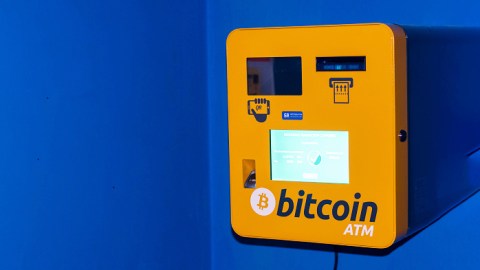Would You Take a College Class on Cryptocurrencies Like Bitcoin?

From inauspicious beginnings to its current notoriety, Bitcoin has revolutionized the way we use and perceive money. Some see Bitcoin as the best kind of currency ever created; others warn that it’s unsustainable and dangerously unregulated. Some of those arguments hold more water than others, but regardless of which side you take, it’s hard to argue against the opinion that Bitcoin and the other 700+ cryptocurrencies out there have plenty of room to improve.
We’re also seeing academic efforts made to improve security as a whole as everyone comes to terms with the fact that cryptocurrency isn’t going to be a temporary fad.
That’s where academia comes in. Marked by the launch of Ledger, the first cryptocurrency research journal, we’re seeing a big push toward the academic study and improvement of digital currency. Cornell University, for example, launched its Initiative for CryptoCurrencies and Contracts (IC3) in July. The goal for these and other research efforts is to explore the inner workings of cryptocurrency systems in order to shape the future of money in the digital future.
Below, Singularity University’s Brad Templeton gives a crash course on Bitcoin and cryptocurrency:
As Andy Extance notes in Nature, academics and entrepreneurs are placing a particularly keen eye on Bitcoin’s innovative online ledger — the block chain — which could serve as a model for developments toward e-contracts and secure voting systems. Everyone from economists to computer programmers to mathematicians is fascinated by the incorporation of game theory into Bitcoin’s fundamental structure. We’re also seeing academic efforts made to improve security as a whole as everyone comes to terms with the fact that cryptocurrency isn’t going to be a temporary fad.
If anything, this shift just cements Bitcoin and similar currencies as a sure-thing for the foreseeable future.
—
Robert Montenegro is a writer, playwright, and dramaturg who lives in Washington DC. His beats include the following: tech, history, sports, geography, culture, and whatever Elon Musk has said on Twitter over the past couple days. He is a graduate of Loyola Marymount University in Los Angeles. You can follow him on Twitter at @Monteneggroll and visit his po’dunk website at robertmontenegro.com.
Read more at Nature
GENT, BELGIUM – 2015/03/29: Bitcoin allows you to send and receive payments at very low cost. Except for special cases like very small payments, there is no enforced fee. Bitcoin on mobiles allows you to pay with a simple two-step scan-and-pay. No need to sign up, swipe your card, type a PIN, or sign anything. All you need to receive Bitcoin payments is to display the QR code in your Bitcoin wallet app. (Photo by Jonathan Raa/Pacific Press/LightRocket via Getty Images)





